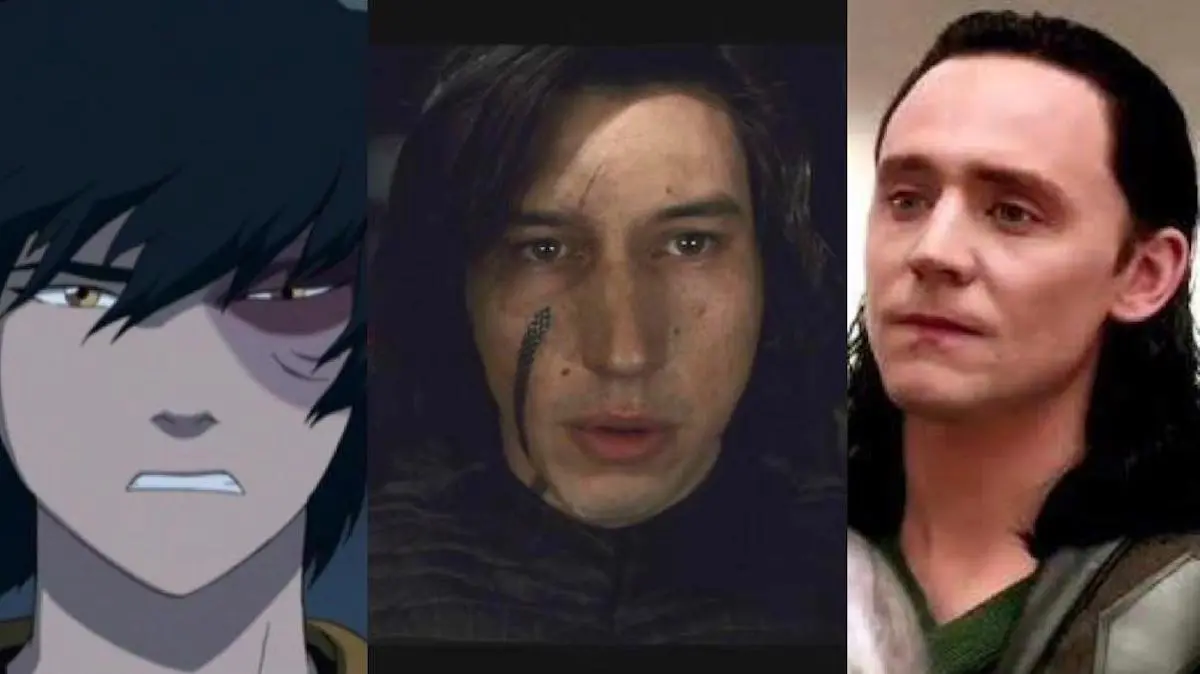From Jason Vorhees to Anakin Skywalker, a close bond between mother and son has long been used in storytelling as a way to humanize male villains. “A boy’s best friend is his mother,” Norman Bates chillingly tells us in Psycho. Sometimes, this bond is used merely as a throwaway gag—a “Your Mom” insult to get a rise out of a character. Other times, it’s exploited as a weakness to shake the confidence of a seemingly unshakeable baddie or anti-hero.
“They just keep knocking the crap out of me and waving a confession in my face. And I keep spitting blood all over it and laughing at how many fresh copies they come up with,” ex-con Marv narrates in Sin City. “Then along comes this worm assistant district attorney who turns the recorder off and says if I don’t sign their confession, they’ll kill my mom. I break his arm in three places and I sign it.” When it’s explored more fully, however, the bond we see as a glimmer of hope for a male villain’s salvation is also often presented as the cause of great internal conflict for the character.
In contrast, male and female characters who take more after their fathers (or father figures) usually receive the gifts of strength and confidence associated with traditional masculinity. At her worst, a “Daddy’s Girl” might come across as spoiled and abrasive, but at her best, she’s presented as hardy, thick-skinned, and usually great with a shotgun or changing a tire. She can be a cool, plaid-wearing tomboy or a cool girly-girl. “Daddy’s Girls” nearly always benefit from taking on (what we think of as) traditional male traits; they’re the “whole package,” which isn’t an inherently bad thing.
But, more often than not, “Mommy’s Boys” don’t reap the same rewards from a matriarchal affinity. Instead, they seem to have their sense of self interrupted by it, maybe even corrupted. Because this tends to be a particularly common backstory for male villains, antagonists, or just “weirdos,” it’s a bond colored by all of the negative stereotypes we’re conditioned to have about mother/son closeness: that doting mothers make boys grow into soft, weak, and dependent men. And, when those men grow into monsters, this seems less incidental and more causal.
In the horror genre, which helped popularize this trope in pop culture, the mothers of Norman Bates and Jason Vorhees are quite literally the causal factors; mother and son are both trapped and united by evil. Beyond Horror, though, things can get a lot more complicated. To dive into this further, let’s explore a couple of different examples of how this trope plays out for some of the most popular villainous “Mommy’s Boys.”
LOKI
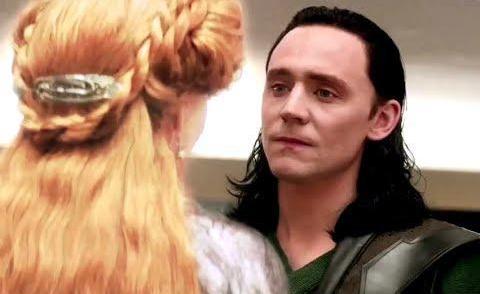
(image: Marvel Entertainment)
In the MCU, the dynamic between Thor and Loki and their parents is a recognizable one: one child more closely bonded with one parent than the other. Thor takes after his father Odin—a born leader, warrior, and to begin with, full of his father’s previous bloodlust for battle. Though Loki longs for that same relationship with his adoptive father, he clearly takes after Frigga more. He has her magic, after all, a skill that Thor was perhaps too uninterested or too unskilled to learn. He has her ferocity of spirit, too; Loki wears his dark heart on his sleeve, and when we see Frigga take up arms to protect her husband or give her life to defend Jane Foster, we glimpse that same tenacity.
Loki is characterized as someone who always wants what he can’t have—whether it’s the throne or his father’s undivided attention—and is ungrateful for the things he does have: a high-ranking position in Asgardian society, powerful magic, and his mother’s unconditional love. “Do I not also have your love?” Frigga asks him, clearly hurt, when she visits her incarcerated son in Thor: The Dark World. The hint of an apology ghosts the would-be ruler of Earth’s face, but his retort is bitter and childish. Later, after her death, the falseness of his denial is laid bare in broken furniture, bloodied feet, a haggard expression and a weak attempt to hide his grief from his brother who, for once, he can’t fool with his illusions.
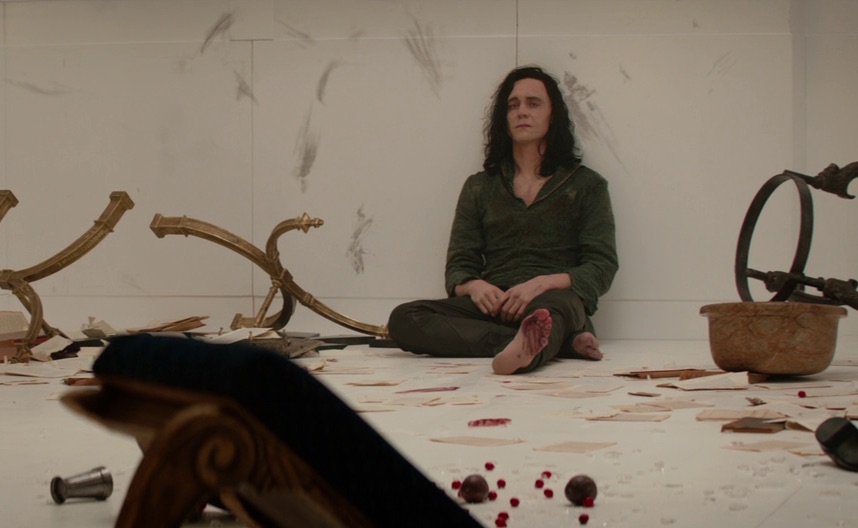
(image: Marvel Entertainment)
You could argue that Loki has the added complications of being an adopted child and an orphan of war, but as he grew up unaware of both these facts, they haven’t shaped the man he is by the time we meet him in the first Thor movie. Loki clearly feels “othered” by his connection to his mother, and though, deep down, he values her affection and the strengths and skills she passed on to him, his resentment of it feeds his jealousy of his brother. The Dark World ends with Loki at a place of successful stability—untethered from his mother by death and having surpassed his father by trickery. By that point, Thor’s struggle with the uglier traits he inherited from Odin have long since been resolved. Loki’s remain like a badly stitched wound, threatening to come apart again at any moment.
KYLO REN
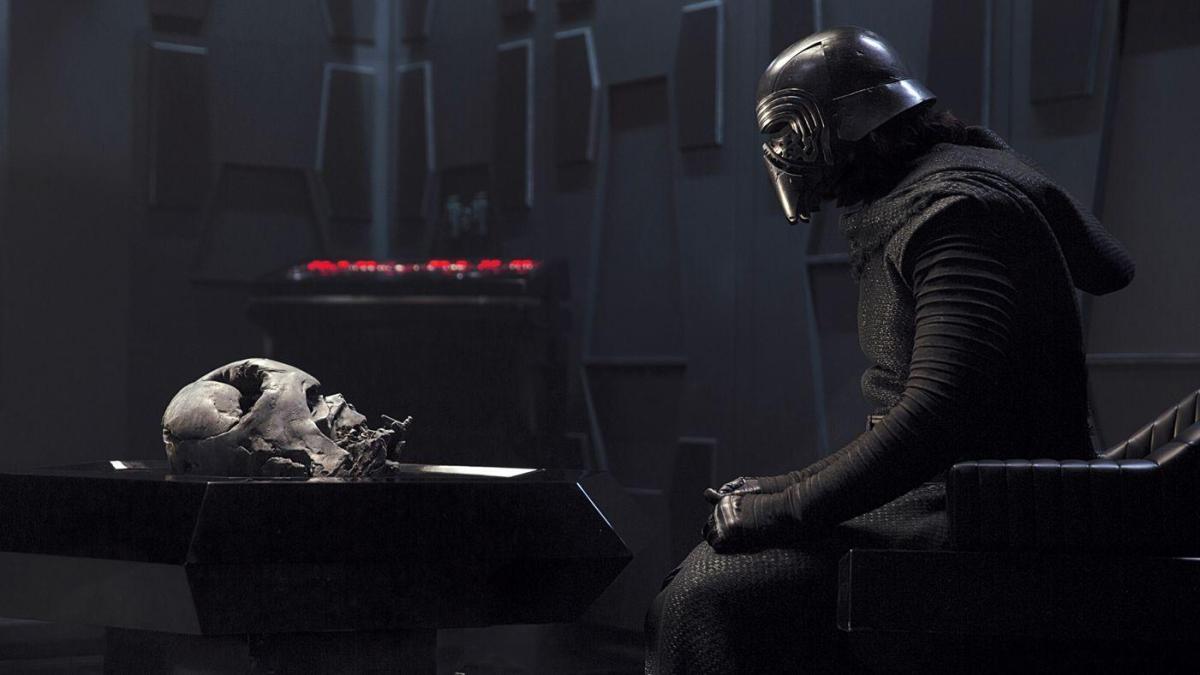
(image: Disney/Lucasfilm)
Though it’s yet to explored in-depth, there’s a lot of evidence already from the first two installments of the Star Wars sequel series to suggest that Ben Solo’s bond with his mother will be far harder for to him to sever than it was with his father. As with Loki, the passing of specific skills between mother and son intensify the connection. Both royal children inherit mystic abilities from the maternal side of their family and both are at once made stronger and weaker for it; moments of Kylo’s supreme mastery of the Force are undercut by his fits of rage. He’d be glad to know how much of this parallels his idolized grandfather’s own descent into darkness, which was triggered by the death of his loving, single mother.
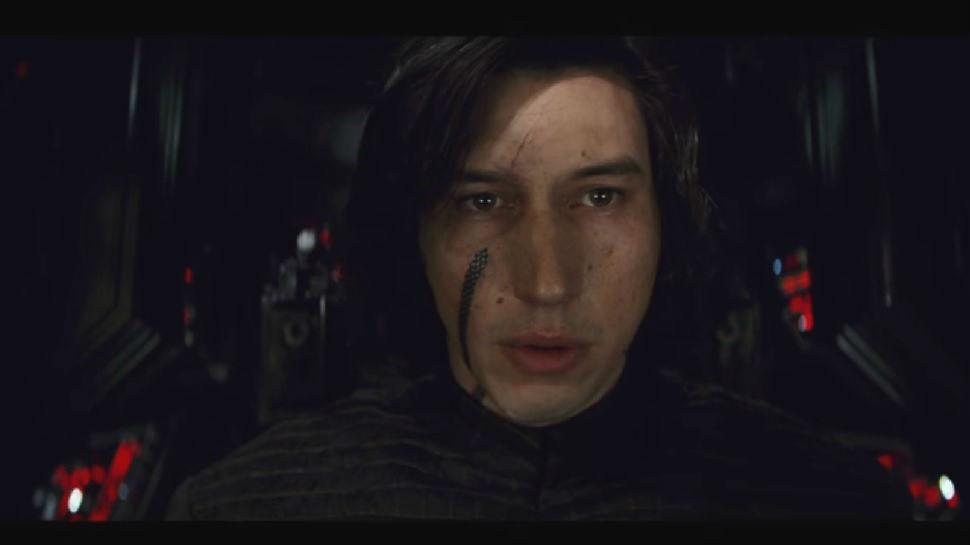
(image: Disney/Lucasfilm)
Murdering his father may have cleaved his soul in two, but it was a deed Kylo was able to accomplish intimately and with minimal hesitation in The Force Awakens. When it came to killing his mother at a long distance with just the squeeze of a trigger in The Last Jedi, Kylo completely froze up. The novelization expands on this tense moment with the memories that flow between mother and son through their Force connection, revealing through Leia a boy who was “forever following” his dad, desperate to be a pilot just like him, and through Kylo a realization that his mother “ached for him to come back to her.” Despite having an innately closer connection his mother, Ben Solo aspired to fill his father’s shoes. Assuming his mother to be dead when another TIE pilot finishes the job for him, Kylo’s arc in The Last Jedi then oddly resembles Loki’s in The Dark World: teaming up with his enemy and opening up an unexpected path to the seat of power, which he snatches through trickery.
ZUKO
(image: Nickelodeon)
Avatar: The Last Airbender’s Zuko is a painfully obvious villainous “Mommy’s Boy.” His loyalty to his tyrannical father, Fire Lord Ozai, runs so deep, in fact, that even after suffering permanent physical damage from him as a child, the banished Prince commits himself to an international wild goose chase to capture the Avatar, desperate to redeem himself. His quest becomes all-consuming, and his efforts to emulate his father’s cruelness fail to repair the split in his psyche. Over the course of the series, we learn that Zuko had a close relationship with his now-absent mother, who tried to foster her son’s capacity for fairness and compassion alongside his Fire-bending strengths.
Zuko’s failures in his father’s eyes are also measured against his sister Azula’s strengths. Azula is the perfect villainous “Daddy’s Girl,” able to absorb and master everything their father wants to pass onto his children with frightening accuracy and ferocity. Azula’s self-confidence sits in sharp opposition to her brother’s self-doubt, and where she closed herself off from their mother with seemingly little recourse (other than a pathological lack of human empathy) Zuko’s bond with her carved his identity into two competing halves. In his mother’s absence, he dedicates himself fully to reclaiming his honour and keeping his path to the Fire Lord’s position open, seemingly quelling his inner turmoil.
(image: Nickelodeon)
But, as the series progresses, The Last Airbender gradually subverts these tropes by applying the importance of balance between the four elements that the Avatar represents to Zuko’s internal fracturing. Encouraged by his Uncle Iroh—the kind of mentor that Luke failed to be for Ben Solo—Zuko turns inward to examine his family’s hidden history and recall memories of his lost mother that he’d tried to expel. By opening himself back up to her, he’s able to suck the poisonous influence of his father out, a poison that eventually disintegrates the psychological “wholeness” of his sister. Zuko uses his “Mommy’s Boy” status to grow from an embittered, emotionally unstable villain to a self-assured, content hero, something very few villains with similar backstories are able to do.
A patriarchal society teaches us that young men are not supposed to take after strong women—respect them, perhaps, but aspire to be them? No. Time and time again, our favourite stories tell us that characters like Kylo and Loki’s villainy was nurtured by failing to become their fathers, and an affinity with their mothers led them to become outwardly strong, but internally weak. What we’re left with are fractured male identities. Meanwhile, their opponents—Thor and Rey—are able to find resolution through the male mentors that Loki and Kylo couldn’t connect with: Odin, Heimdall, Han, and Luke. Zuko, on the other hand, is able to learn through his mother’s and uncle’s influences that traits like compassion and fairness are not exclusively feminine, just as strength and confidence is not exclusively masculine, and ultimately reclaim his humanity.
Unlike Zuko, Loki and Kylo’s journeys have yet to be concluded (as of the time of writing). Both are poised to embark on what could be their final cinematic outings (Loki in Avengers: Infinity War and Kylo in Star Wars: Episode IX.) Salvation or damnation, wholeness or fragmentation looms large on both of their horizons.
(featured image: Nickelodeon, Lucasfilm, Marvel Entertainment)
Hannah is a writer, illustrator, librarian (yes, they still exist) and feminasty based in the UK. When she’s not working, you’ll find her collecting Clow Cards, training her Blaziken to be the very best like no-one ever was, and binge-watching RuPaul’s Drag Race. Follow her! She’d like the company: https://twitter.com/SpannerX23.
Want more stories like this? Become a subscriber and support the site!
—The Mary Sue has a strict comment policy that forbids, but is not limited to, personal insults toward anyone, hate speech, and trolling.—



